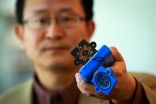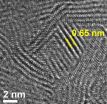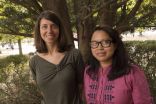(Press-News.org) Los Angeles, CA (November 4, 2014) The growing disparity in economic inequality has become so stark that even Janet Yellen, Federal Reserve chairwoman, recently expressed concern. Interestingly, new research has discovered that American citizens desire an unequal, but more equal distribution of wealth and income. Lower levels of this "unequality" are associated with decreased unethical behavior and increased motivation and labor productivity. This study is published today in the inaugural issue of Policy Insights from the Behavioral and Brain Sciences (PIBBS).
"People from all walks of life – rich and poor, liberal and conservative – agree far more than they disagree on what America should look like. People exhibit a desire for unequality – not too equal, but not too unequal," wrote study author Michael I. Norton, of the Harvard Business School.
In his recent research, Norton found that people dramatically underestimate how unequally wealth is distributed in the U.S. and desire some inequality, but much less inequality than the current levels. For example:
Americans estimated that the richest 20% had about 60% of the nation's wealth, when in reality, they had 85%; they wanted the richest 20% to possess 30% of the nation's wealth.
Americans estimated that the poorest 20% had about 4% of the nation's wealth, when in reality, they had .1%; they wanted the poorest 20% to possess 10% of the nation's wealth.
Americans estimated that CEOs made an average of 30x what unskilled workers made, while in reality, they earned 354x what unskilled workers made; Americans thought that an ideal pay ratio for CEOs to unskilled workers would be 7:1.
Drawing on recent behavioral research, Norton writes that high levels of pay inequality demotivates lower paid workers and is not offset by increases in motivation for higher paid workers. Inequality may even lead to worse performance in both groups, less generosity, and more unethical behavior (e.g. cheating) across the income distribution.
Commenting on his behavioral approach to the topic of an unequal economy, Norton noted:
"Economists have used historical data to attempt to determine when and why inequality has positive and negative consequences. Behavioral scientists – psychologists and behavioral economists – have taken a different and complementary approach: How inequality affects the thoughts, emotions, and behavior of a single person in worlds that are more or less unequal, and how that person's rank in each world – from richest to poorest – further shapes behaviors ranking from cheating to effort to generosity."
INFORMATION:
The new PIBBS journal includes 33 articles, published today, on pressing social issues as they relate to policy. The following three articles relate to policy improvements for education. Full-text copies can be accessed by emailing camille.gamboa@sagepub.com.
"Unequality: Who Gets What and Why It Matters" by Michael I. Norton
"Assumptions About Behavior and Choice in Response to Public Assistance: A Behavioral Decision Analysis" by Crystal C. Hall, Martha M. Galvez, and Isaac M. Sederbaum
"Why Economic, Health, Legal, and Immigration Policy Should Consider Dehumanization" by Lasana T. Harris
SAGE is a leading international publisher of journals, books, and electronic media for academic, educational, and professional markets. Since 1965, SAGE has helped inform and educate a global community of scholars, practitioners, researchers, and students spanning a wide range of subject areas including business, humanities, social sciences, and science, technology, and medicine. An independent company, SAGE has principal offices in Los Angeles, London, New Delhi, Singapore and Washington DC. http://www.sagepublications.com
Policy Insights from the Behavioral and Brain Sciences is a new annual publication that presents original research and scientific reviews relevant to public policy. This annual will
Allow scientists to share research that can help build sound policies.
Allow policymakers to provide feedback to the scientific community regarding research that could address societal challenges.
Encourage the scientific community to build models that seriously consider implementation to address the needs of society.
Researchers advocate for optimum level of 'unequality' for the US economy
2014-11-04
ELSE PRESS RELEASES FROM THIS DATE:
Researchers recommend features of classroom design to maximize student achievement
2014-11-04
Los Angeles, CA (November 4, 2014) With so much attention to curriculum and teaching skills to improve student achievement, it may come as a surprise that something as simple as how a classroom looks could actually make a difference in how students learn. A new analysis finds that the design and aesthetics of school buildings and classrooms has surprising power to impact student learning and success. The paper is published today in the inaugural issue of Policy Insights from the Behavioral and Brain Sciences (PIBBS).
Surveying the latest scientific research, Sapna Cheryan, ...
Better bomb-sniffing technology
2014-11-04
SALT LAKE CITY, Nov. 4, 2014 – University of Utah engineers have developed a new type of carbon nanotube material for handheld sensors that will be quicker and better at sniffing out explosives, deadly gases and illegal drugs.
A carbon nanotube is a cylindrical material that is a hexagonal or six-sided array of carbon atoms rolled up into a tube. Carbon nanotubes are known for their strength and high electrical conductivity and are used in products from baseball bats and other sports equipment to lithium-ion batteries and touchscreen computer displays.
Vaporsens, ...
Less reward, more aversion when learning tricky tasks
2014-11-04
PROVIDENCE, R.I. [Brown University] — We celebrate our triumphs over adversity, but let's face it: We'd rather not experience difficulty at all. A new study ties that behavioral inclination to learning: When researchers added a bit of conflict to make a learning task more difficult, that additional conflict biased learning by reducing the influence of reward and increasing the influence of aversion to punishment.
This newly found relationship between conflict and reinforcement learning suggests that the circuits in the frontal cortex that calculate the degree of ...
Rice chemists gain edge in next-gen energy
2014-11-04
HOUSTON – (Nov. 4, 2014) – Rice University scientists who want to gain an edge in energy production and storage report they have found it in molybdenum disulfide.
The Rice lab of chemist James Tour has turned molybdenum disulfide's two-dimensional form into a nanoporous film that can catalyze the production of hydrogen or be used for energy storage.
The versatile chemical compound classified as a dichalcogenide is inert along its flat sides, but previous studies determined the material's edges are highly efficient catalysts for hydrogen evolution reaction ...
Gardeners of Madagascar rainforest at risk
2014-11-04
HOUSTON – (Nov. 4, 2014) – A majority of Madagascar's 101 species of lemurs are threatened with extinction, and that could have serious consequences for the rainforests they call home. A new study by Rice University researchers shows the positive impacts lemurs can have on rainforest tree populations, which raises concerns about the potential impact their disappearance could have on the region's rich biodiversity.
A large proportion of trees in Madagascar's rainforest have fruits eaten by lemurs. Lemurs in turn disperse the seeds of their fruit trees throughout ...
Study finds association between coronary artery plaque and liver disease
2014-11-04
OAK BROOK, Ill. – Researchers using coronary computed tomography angiography (CCTA) have found a close association between high-risk coronary artery plaque and a common liver disease. The study, published online in the journal Radiology, found that a single CT exam can detect both conditions.
Previous research has shown that CCTA can detect high-risk coronary artery plaque, or plaque prone to life-threatening ruptures. For the new study, researchers looked at associations between high-risk plaque and non-alcoholic fatty liver disease (NAFLD), a condition characterized ...
Report card on complementary therapies for breast cancer
2014-11-04
Over eighty percent of breast cancer patients in the United States use complementary therapies following a breast cancer diagnosis, but there has been little science-based guidance to inform clinicians and patients about their safety and effectiveness. In newly published guidelines from the Society for Integrative Oncology, researchers at Columbia University's Mailman School of Public Health and the Herbert Irving Comprehensive Cancer Center with colleagues at MD Anderson Cancer Center, University of Michigan, Memorial Sloan Kettering, and other institutions in the U.S. ...
Studies show exercise therapy, acupuncture benefit breast cancer survivors
2014-11-04
PHILADELPHIA - Two new studies from the Abramson Cancer Center and the Perelman School of Medicine at the University of Pennsylvania offer hope for breast cancer survivors struggling with cancer-related pain and swelling, and point to ways to enhance muscular strength and body image. The studies appear in a first of its kind monograph from the Journal of the National Cancer Institute Monographs focusing on integrative oncology, which combines a variety of therapies, some non-traditional, for maximum benefit to cancer patients.
In the first study, A Hybrid Effectiveness-Implementation ...
Study finds intractable conflicts stem from misunderstanding of motivation
2014-11-04
Chestnut Hill, MA (November 4, 2014): Whether it's politics in the United States or violent conflict in the Mideast, the roots of the vitriol and intractability begin to grow not from a hatred of the other side, but from a misunderstanding of what's motivating the other side. According to a new study co-authored by a Boston College neuroscientist, not only does this misunderstanding pose a barrier to solutions, but it can be corrected through financial incentives.
The research involved the participation of almost 3,000 people: Israelis and Palestinians in the Mideast, ...
Half of smokers using Liverpool Stop Smoking Services used e-cigs
2014-11-04
Over half the smokers using the Liverpool Stop Smoking Service have tried electronic cigarettes (51.3 per cent). Of these, nearly half had used them within the past month and are considered current users (45.5 per cent).
The data* – presented at the National Cancer Research Institute (NCRI) Cancer Conference in Liverpool today (Tuesday) – also highlights that smokers are more likely to try e-cigarettes if they feel more confident that the products are safer than tobacco smoking.
Researchers from the University of Liverpool quizzed more than 320 smokers from ...


